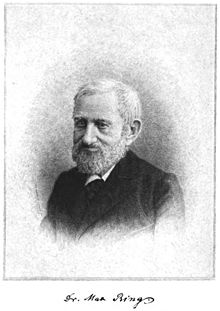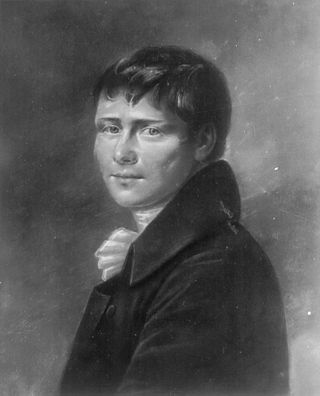
Bernd Heinrich Wilhelm von Kleist was a German poet, dramatist, novelist, short story writer and journalist. His best known works are the theatre plays Das Käthchen von Heilbronn, The Broken Jug, Amphitryon and Penthesilea, and the novellas Michael Kohlhaas and The Marquise of O. Kleist died by suicide together with a close female friend who was terminally ill.
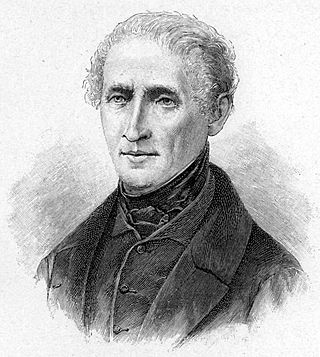
Joseph Freiherr von Eichendorff was a German poet, novelist, playwright, literary critic, translator, and anthologist. Eichendorff was one of the major writers and critics of Romanticism. Ever since their publication and up to the present day, some of his works have been very popular in German-speaking Europe.

Max Herbert Eulenberg (1876–1949), was a German poet and author born in Cologne-Mülheim, Germany. He was married from 1904 to Hedda Eulenberg.
The bibliography of the Austrian author Leopold von Sacher-Masoch (1836—1895) includes a complete, exhaustive list of original books published during the author's lifetime.

Wilhelm Bölsche was a German author, editor and publicist. He was among the early promoters of nature conservation and committed to popularizing science.

Thomas Brasch was a German author, poet and film director.

Heinrich Ludwig Egmont Dorn was a German conductor, composer, teacher, and journalist. He was born in Königsberg, where he studied piano, singing, and composition. Later, he studied in Berlin with Ludwig Berger, Bernhard Klein, and Carl Friedrich Zelter. His first opera, Rolands Knappen, was produced in 1826, and was a success. Around this time, he became co-editor of the Berliner allgemeine Musikzeitung.
Oskar Höcker was a German author of historical novels for children and a stage actor.
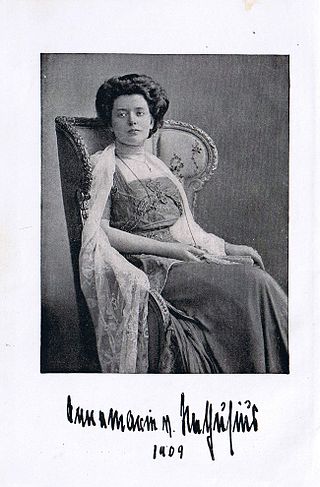
Annemarie von Nathusius, originally Anna Maria Luise von Nathusius, was a German novelist who wrote boldly about issues of women’s sexuality and lived a distinctly unconventional life. In her books, she criticized the sexual ignorance and exploitative marriages imposed on young women of her class. Her most successful novel was Das törichte Herz der Julie von Voß. The novel Malmaison 1922 was film adapted by Paul Ludwig Stein for the movie Es leuchtet meine Liebe.
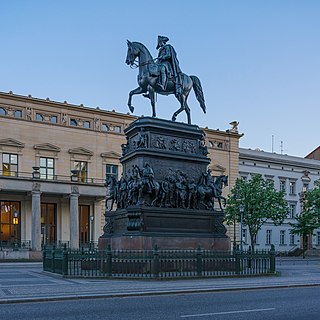
The equestrian statue of Frederick the Great on Unter den Linden avenue in Berlin's Mitte district commemorates King Frederick II of Prussia. Created from 1839 to 1851 by Christian Daniel Rauch, it is a masterpiece of the Berlin school of sculpture, marking the transition from neoclassicism to realism. The bronze statue shows "The Old Fritz" dressed in military uniform, ermine coat and tricorne hat on horseback above the leading generals, statesmen, artists and scientist of his time. Walled in during World War II, it was disassembled by East Germany in 1950, reassembled in Sanssouci Park in 1963, and returned to its original location in 1980.
Wilhelm Henschel was a German-Jewish artist especially known for his drawings, and as a member of the artistic team the Brothers Henschel, together with his three brothers, Friedrich (1781-1837), August (1782-1828) und Moritz (1785-1862). Active in Berlin and in their hometown, Breslau (Wrocław), the brothers were known for drawings, pastels, engravings, miniature paintings, and lithographs.
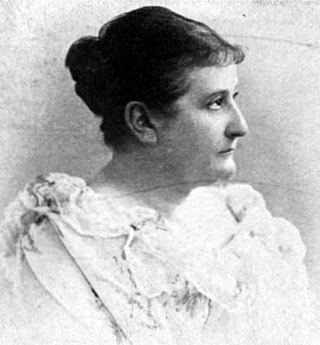
Dora Livia Felicia Maria Duncker was a German writer of novels, short stories, essays, poems and stage works. She was also active as a theatre critic.
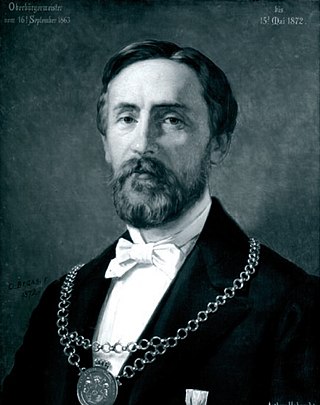
Arthur Heinrich Rudolph Johnson Hobrecht was a German liberal politician, mayor of Breslau (Wrocław) and Berlin. Hobrecht served as Prussian minister of Finances under Otto von Bismarck and was a member of the Prussian House of Representatives and the German Parliament.

Gerd-Helge Vogel is a German art historian.
Wolf-Dieter Hauschild was a German conductor, choirmaster, artistic director, composer, harpsichordist and university lecturer.
Heinrich Ludwig Schmelka was a German theatre actor, mainly in comic roles, occasionally also a singer (tenor)
Peter Wackernagel was a German musicologist and librarian
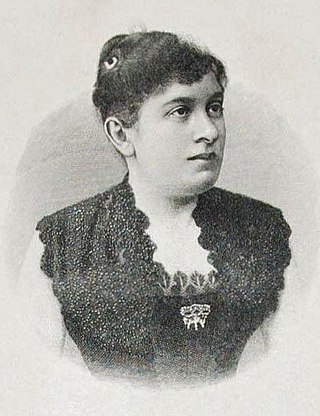
Ulla Wolff-Frankfurter, also known by the pen names Ulla Frank and Ulrich Frank, was a German Jewish playwright, novelist, and journalist.
Moritz Abraham Levy was a German rabbi, orientalist, paleographer and numismatist.
Johann Sigismund Gottfried Huth was professor for mathematics and physics.
